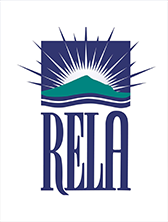Driving in New Zealand
If you are going to drive a car or ride a motorbike while studying in New Zealand you will need to know some of the New Zealand Road Code.
The Road Code
Like Australia and the UK, we drive on the left. It’s compulsory to wear a seat belt if one is provided, and it’s illegal to use a hand-held mobile phone while driving unless in an emergency.
You must carry your driver’s licence with you at all times when driving and if your licence is not in English you will need an approved translation or an international driving permit (IDP). We can help you to translate your licence at RELA.
Giving way (yielding)
You must always use your indicator whenever you make a turn at an intersection, even if you’re in a lane that can only turn. If you are turning at traffic lights then you must give way to pedestrians already crossing the road.
Unlike in America, you are not allowed to turn on a red traffic light. Red always means stop.
Drive clockwise around roundabouts (turning circles) and give way to traffic approaching from your right. As you approach a roundabout signal in the direction you want to turn (left for turning left, right for turning right, or no signal for going straight ahead). Once you are on the roundabout, signal left off it – i.e. just after the exit before the one you want to take, signal left and then exit the roundabout.
If you are turning off a through road (e.g. into a side road), give way to all traffic coming towards you that is passing straight through or turning left. At a T-intersection, give way to traffic on the top of the T if you are on the bottom of the T.
Speed limits
The main speed limits are:
Open road, motorway and freeway: 100kph
Urban: 50kph
School zones: 40kph (as signposted)
Roadworks (urban): 30kph
Past a stationary school bus picking up/dropping off children, or the site of an accident when accident signs are showing: 20kph
Shared pedestrian zones: 10kph
Speed limit signs are shown as a red circle surrounding a white circle which has a black number inside. You will also see advisory limits on sharp corners – these are yellow signs with black writing.
Alcohol and drugs
There is a zero alcohol limit for drivers under 20 years old. For drivers 20 and over the limit is 250mcg/litre of breath, or 0.05%.
If you are under the influence of any type of drug, whether illegal or legal (e.g. OTC medicines for common ailments, or even natural medicines that affect your reactions), it is illegal to drive.
Motorways
Motorways only exist in the main centres. Keep left unless you are passing. You are allowed to pass on the left if there is slower traffic in the right hand lanes.
Merge onto the motorway in alternate turns (like a zip). You are not allowed to park, reverse or turn around on a motorway.
Recommended resources for the Road Code
There are other rules you should be aware of when driving – things like lane markings and signs which are better explained with images – so check out these resources recommended by the Tourism Industry Association of New Zealand. Have fun on your trip to New Zealand – it’s really a fantastic place to drive around.
Free Road Code quiz – test your knowledge to see if you’re ready to drive in NZ. Available in English, German, Spanish and Chinese.
Driving in New Zealand on an international licence – NZTA guide to your eligibility to drive in NZ.
The NZTA has also put out a very helpful booklet summarising what is different about driving in New Zealand http://www.nzta.govt.nz/resources/driving-in-nz/index.html – This is available in 14 different languages.
Insurance
While vehicle insurance isn’t compulsory in New Zealand we recommend you get it. If you have an accident with an expensive car, the bill could run into tens of thousands of dollars and, if you are unable to pay, you may be prevented from leaving the country until the debt is paid off.
Buying a vehicle
Vehicles can be bought from a dealer, and they will come with a warranty. You can also buy them second hand from websites such as www.trademe.co.nz, or you can attend a car fair. If you are purchasing privately you should consider a vehicle history report from a company such as www.checka.co.nz to ensure there is no money owing on the vehicle and it hasn’t been reported stolen, and a pre-purchase inspection from a mechanic (many car fairs have one on-site).
